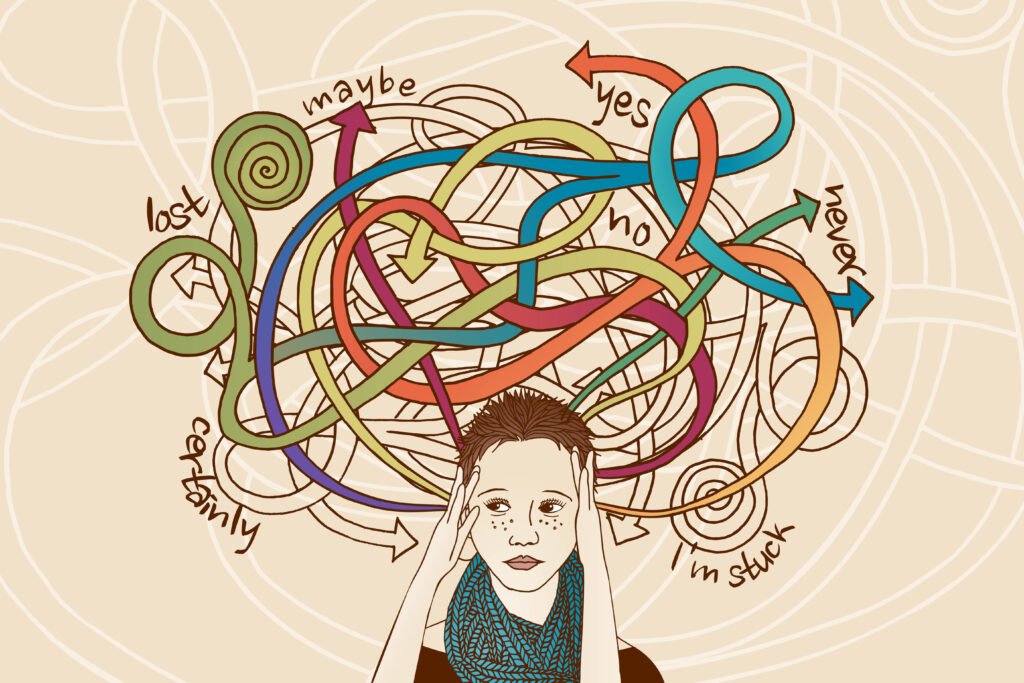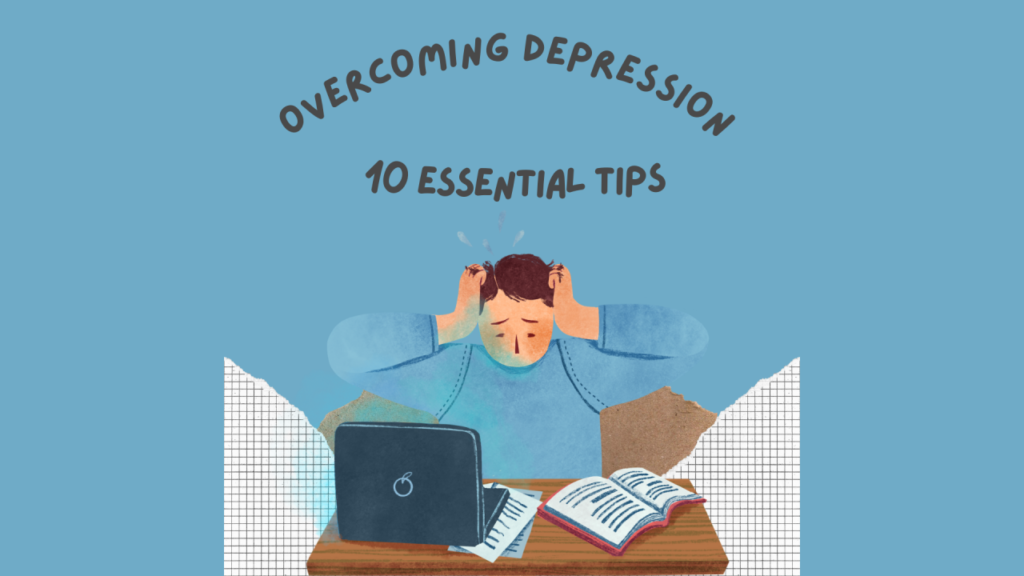Table of Contents

Depression is one of the most common disorders that affects millions of people around the world, and while it’s sometimes difficult to know how to help yourself or cope when you have one, you do have hope. With the right tools, strategies, and support, people can take back control of their mental health and begin to lead more fulfilled lives. Read on to find out 10 effective ways to overcome depression, which may help you on your journey toward healing.
Understanding Depression: What It Really Means
Depression isn’t just your mood—depression is a complex mental health issue that affects the way you feel, what you do, and how you feel overall. It can also have physical effects, such as fatigue, sleep disturbance, and changes in appetite. There are lots of different things that could cause depression, but it should be noted that it is treatable.
For more information about the causes and symptoms of depression, check out these trusted resources:
Cleveland Clinic: Depression Overview – Learn about the signs, symptoms, and causes of depression from Cleveland Clinic.
National Institute of Mental Health: Depression – The National Institute of Mental Health provides an in-depth look at depression, including risk factors and treatment options.
To learn more about improving your overall mental health and well-being, visit our Cleverblades homepage.
Why It’s Important to Overcome Depression
The sooner you recognize your depression and take action, the faster you can feel better. Burning out of depression not only helps you feel better about yourself, but it also allows you to develop healthier relationships, accomplish more with your life, and lead a happier life. The recovery process may be long-lasting but, once you’ve made the effort, you can see dramatic improvements in your mental health.
10 Essential Tips to Overcome Depression

1. Seek Professional Help
One of the biggest challenges in dealing with depression is to seek help from a mental health professional. Whether you need therapy, counseling or medication, treatment from a mental health professional can give you the tools and support you need to manage your depression. A mental health professional can explain different types of treatment and help you find the right type for you.
2. Build a Strong Support System
It’s important to have somebody you can turn to for support. You may need to talk with family, friends, or a support group to get some advice and support, and to listen. You might also want them to encourage you to follow through with your treatment plan and allow you to vent during difficult times.
3. Practice Mindfulness and Meditation
Mindfulness and meditation are very beneficial for managing stress levels and improving your mental clarity. By paying attention to what is happening now and calming your mind you may be able to reduce the overly emotional thinking that usually occurs with depression. Daily meditation or mindfulness practice can help you feel more grounded and less anxious.
4. Stay Active and Exercise Regularly
There is evidence that exercise has a positive impact on mental health. Regular physical activity can release endorphins. Endorphins are natural mood enhancing hormones. So whether it’s going for a walk, doing yoga, or signing up for a fitness class, you’ll feel better physically and emotionally.
5. Set Small, Achievable Goals
When you’re having depression it’s really easy to get caught up in thinking about the most trivial things in life. To help you avoid feeling overwhelmed by the big picture try breaking your goals down into smaller tasks. You can then feel better after completing those small tasks and develop more confidence in the long run.
6. Develop Healthy Sleep Habits
Lack of sleep (or low quality) can make depression worse. Try to get used to having a regular sleep schedule (e. g. going to bed and getting up at the same time every day). Ensuring you have a calming bedtime routine (read, watch a book, listen to soothing music) can also have a positive impact.
7. Focus on Nutrition and Healthy Eating
Food choices can have an enormous impact on your mood and energy levels. A well-balanced diet high in fruits and vegetables, lean proteins and whole grains can help to both improve your physical and mental health. Stop eating too much caffeine and sugar as this can cause negative effects on mood and energy.
8. Explore Creative Outlets and Hobbies
Often therapy can take the form of creative activities such as drawing, painting, writing or playing a musical instrument. Creative therapies enable people to express their feelings and emotions in a constructive way which helps remove stress and improve mental well being.
9. Avoid Isolation: Stay Connected
It’s easy to lose yourself in a depressed mood, but it’s important to be social to help you feel better. Even if it feels hard, try to keep in touch with friends or family members. Either by calling them on the phone or making a visit, you’ll help make other people feel better and relieve your loneliness.
10. Be Patient and Practice Self-Compassion
If you are struggling with depression, it’s important that you be patient with yourself. There is no shortcut to recovery and you will not get instantaneous recovery. Practice self-compassion by being nice to yourself, recognizing how you are getting better, and forgiving yourself for your mistakes
Conclusion:
It will take time and effort, but, with the right approach and willingness to seek help, you can take steps in learning how to prevent and treat depression. You will feel better quickly with these 10 best practices for living a happier and more satisfying life.



